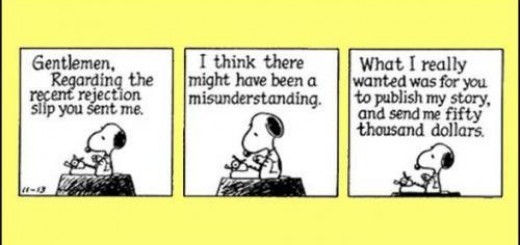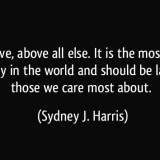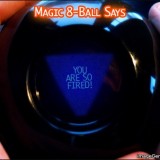Ghostwriting – not as scary as it seems
With Halloween just around the corner, it seems to me that Ghostwriting might be just the thing to blog about this week, especially since I recently completed ghostwriting a book on nutrition and sports performance for two doctors, one of which is a Nobel Laureate in medicine.
I began this particular project in February of this year, so it was a lengthy and challenging process, but it also was a great learning experience. For me, it was a perfect assignment, as I have quite a bit of background in the medical and health information field. As the ghost, it was my job to conduct numerous interviews and follow up with in-depth research, and then write the book using a more conversational, layman’s tone, rather than a medical or technical tone. Now my work has been handed off to an editor who will polish it and prepare it for print.
In many ways, my 30 year career working in public relations and media has been all about ghosting. As a PR professional I write speeches for others, create quotes in press releases for company principals, develop video scripts that others speak, and prep people in how to respond to media interviews. In essence, I was working in the background to make other people look good.
That’s pretty much what a ghostwriter does – develop and write a book or other creative work and let someone else take credit.
If you don’t mind remaining invisible while someone else gets the glory, ghosting can be an excellent and quite lucrative career move. If you’re considering it, here is some information:
Why do people hire ghosts?
I once read an estimate that more than 80 percent of published books are ghostwritten. You know the old saying, everyone has a book inside of them!
People hire ghostwriters because:
a). They don’t have the time to write their own book
b) They don’t have the writing talent to write a book
c) They don’t have the discipline to complete a book
How is a ghostwriter paid?
Some ghosts charge a flat fee for their work. Others might reduce or waive their fee in return for percentage of the royalties from the sale of the book. I feel there is an advantage to a flat fee, as you know exactly what you will be paid. You can structure your contract to pay you a percentage up front and at scheduled points throughout the work process (for example, as certain deadline are met, or chapters are completed) to allow for a regular income while you’re working on the project.
Do you need a contract?
Yes, yes, yes!
The website Writers and Editors is a wonderful place to find everything you might want to know about ghostwriting and collaboration
Does a ghostwriter get any of the credit?
My name will never appear on the book that I just wrote, and that usually is the way it goes for ghosts. Sometimes ghosts are even legally bound not to reveal their work on a particular book. However, in some instances ghosts do receive credit, for example as a co-author or in the acknowledgements.
What skills do you need to be a ghost?
Obviously, you need to be a good writer and have the skill to tell a story and keep readers engaged. You need to have good interview skills and the ability to draw out information that may not otherwise be forthcoming. Excellent research skills also are a must, because not all the information needed to write the book will come from interviews or your imagination.
Confidentiality and integrity are also vital. You mustn’t ever judge your client, even if you don’t agree with the story they want to tell. If you don’t want to write the story, you shouldn’t accept the project.
How do you get ghostwriting projects?
Finding ghostwriting jobs is just like finding any other writing work. Most of my success has come from staying connected to others in the industry, promoting myself, and keeping my ears open for potential projects and then following up. Also, make sure to:
- Create a portfolio of work – Include any books you’ve authored under your own name, magazine articles, newspaper stories, website copy, etc.
- Get your name out there- Let your clients, friends, editors, associate, everyone know you provide ghostwriting services. Set up a blog or website to get your name out there, and make sure the word “ghostwriter” is attached to all of your online profiles.
- Hob nob – Join professional writer’s groups, attend book shows, talk to other writers, follow agents and writers on Twitter, make comments on writing blogs and be sure to include a link to your blog or website in your signature.
There are so many advantages to ghostwriting, but one of the greatest is that it offers a chance to meet interesting people that might never cross your path otherwise. In addition, you get paid to learn all about new and fascinating subjects from some of the best experts around. Finally, if you’re like me and you enjoy the process of interviewing, ghosting gives you permission to ask question after question and really get to the heart of a good story.
Thanks for visiting, and keep writing!























